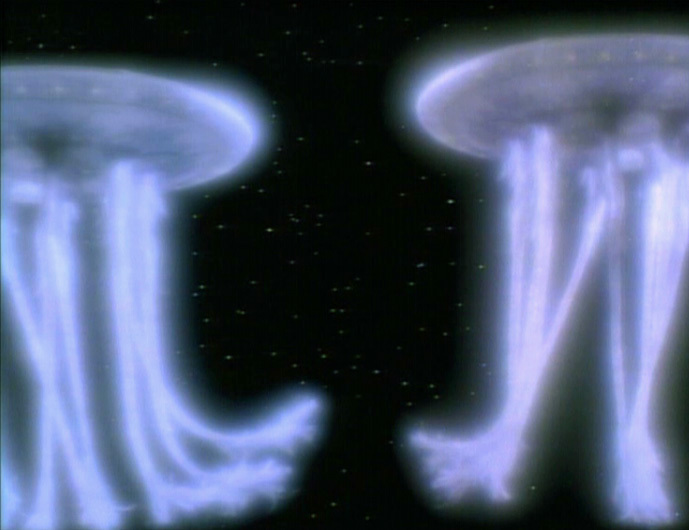
by: Owen Gunden
2013-09-13
tags: vegan
The philosophy of Star Trek is a vegan philosophy.
You don't see it on the surface, because the characters aren't vegan. They replicate chicken dishes and shrimp gumbo. But the philosophy is vegan, and if we ever evolved to a Star Trek-like future, we would all be vegan. (Actually I think we'll all be vegan long before we have interstellar travel, but that's for another post.)
You can't watch a season of Star Trek without coming across the Prime Directive. Everyone in the Federation (that's Earth and her allies) is intimately familiar with this central tenet. You could go so far as to say it's the most important common value held by Federation citizens. While the directive is most explicitly concerned with the dominant species on planets visited by Federation ships, the core ethic is one of general non-interference.
The Prime Directive is not just a set of rules. It is a philosophy, and a very correct one. History has proven again and again that whenever mankind interferes with a less developed civilization, no matter how well intentioned that interference may be, the results are invariably disastrous."
Jean-Luc Picard, "Symbiosis"
The Prime Directive has been further defined this way:
As the right of each sentient species to live in accordance with its normal cultural evolution is considered sacred, no Star Fleet personnel may interfere with the normal and healthy development of alien life and culture. Such interference includes introducing superior knowledge, strength, or technology to a world whose society is incapable of handling such advantages wisely. Star Fleet personnel may not violate this Prime Directive, even to save their lives and/or their ship, unless they are acting to right an earlier violation or an accidental contamination of said culture. This directive takes precedence over any and all other considerations, and carries with it the highest moral obligation.
Giancarlo Genta, Lonely Minds in the Universe: The Search for Extraterrestrial Intelligence. Springer, 2007, p. 208.
This attitude is reflected in episode after episode, where the crew takes great lengths to avoid harming or interfering with alien beings. For example, in Nothing Human (Voyager), even though a crewmember's life is at stake as the alien sucks away her vitality, as many precautions as possible are taken to protect the alien life as well. In Justice (The Next Generation), they even go so far as to risk Wesley Crusher's life out of respect for the laws and customs of another culture.
So what does all this have to do with veganism?
The Prime Directive is mostly focused on not introducing new technologies, or even sometimes just ideas, into developing cultures; it's not hard to extrapolate from here that enslaving, breeding, and killing an alien race to suit our convenience would constitute a gross violation of their normal cultural evolution. And yet, that's exactly what we do to the races of pig, cow, and chicken on Earth today.
It's quite clear that the values of Star Trek require fair treatment of alien species. The question then is only one of which species qualify? And in particular, would nonhuman Earthling animals qualify? What is the test of whether a species qualifies to be treated with respect?

In the Star Trek universe, sentience is bestowed on even the most foreign of species; blobs of goo, giant jellyfish space beings, and computerized intelligence, to name a few.
So why not nonhuman animals?
The French have already discovered that the blackness of the skin is no reason why a human being should be abandoned without redress to the caprice of a tormentor [see Louis XIV's Code Noir]... What else is it that should trace the insuperable line? Is it the faculty of reason, or, perhaps, the faculty of discourse? But a full-grown horse or dog is beyond comparison a more rational, as well as a more conversable animal, than an infant of a day, or a week, or even a month, old. But suppose the case were otherwise, what would it avail? The question is not Can they reason? nor, Can they talk? but, Can they suffer?
Bentham, Jeremy (1823). Introduction to the Principles of Morals and Legislation (second edition). Chapter 17, footnote.
Most or all of Earth's animals have that capacity, and as we move towards our idealized futures, we will inevitably be forced to confront and set right our own ethical inconsistencies.